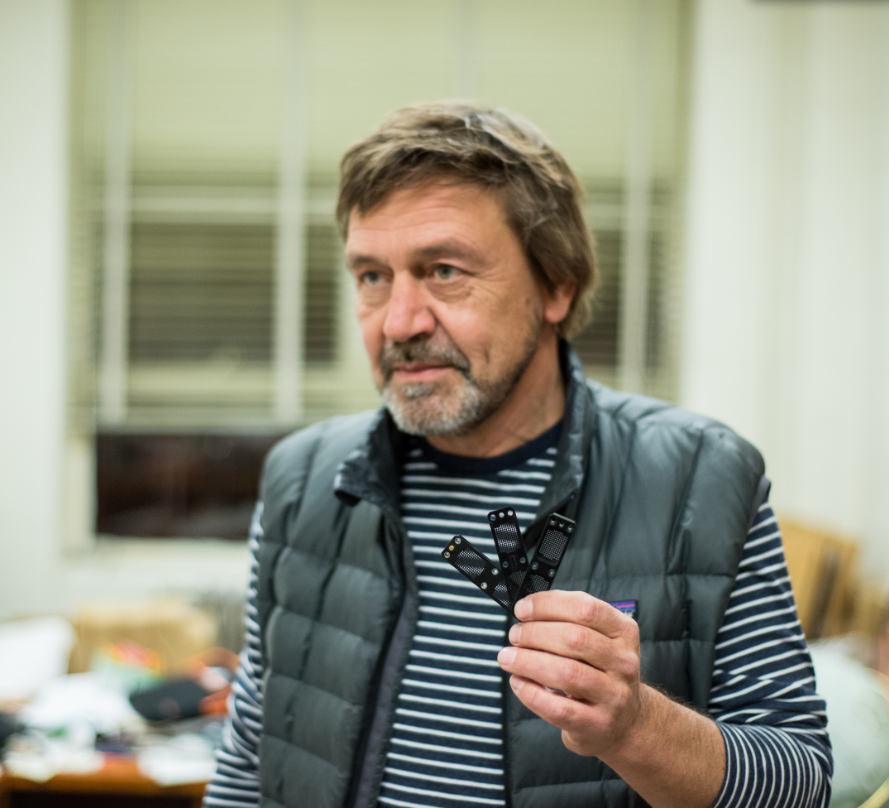By Alexandra Malloy, news staff
Antibiotics have shaped modern medicine, and two Northeastern professors have unearthed a new bacteria that may produce a powerful antibiotic.
Biology Professor Slava Epstein and Distinguished Professor Kim Lewis have developed Teixobactin, a new antibiotic. The antibiotic kills pathogens without detectable resistance, meaning bacteria will not develop an antibiotic resistance.
“[Teixobactin] kills bacteria in a non-traditional way,” Epstein said. “It hits two targets in a pathogen, and as a result has a dual reaction. Typical antibiotics hit one target.”
The discovery comes at a time when traditional antibiotics are beginning to lose their potency. As reported by the Center for Disease Control and Prevention (CDC), at least 2 million people in the US are infected with drug-resistant bacteria, with at least 23,000 of those cases resulting in death.
The discovery of Teixobactin was by chance, and came out of the development of the iChip, engineered by Epstein, Lewis and their labs.
“iChip is a way to culture organisms in their natural environment,” Brittany Berdy, a fourth year Ph.D. candidate studying microbiology, said.
Berdy became interested in the research after coming across one of Epstein’s papers on the iChip, which said that only one percent of bacteria has been cultured in labs, leaving Berdy to wonder about the other 99 percent.
The iChip consists of an inner layer featuring tiny wells which are sealed with a porous membrane small enough that bacteria can’t enter, but nutrients and water molecules can. The iChip is then assembled with two outer pieces and incubated. Once the bacteria inside begins to multiply, it can continue to grow within a lab setting.
Berdy states that the bacteria being cultured in an iChip is more likely to grow than in a traditional lab setting, because the bacteria is being cultured in its natural habitat and each well is already separated by species of bacteria.
“[It] has the potential to isolate species that haven’t been found because we’re growing them in their natural environment,” Berdy said. “And because of that, we have potential access to the other 99 percent [of bacteria] that hasn’t been cultured.”
Teixobactin has cured mice with lung and thigh infections without the bacteria becoming resistant to it. In a test tube setting, the drug killed anthrax, tuberculosis and different kinds of staph and strep infections, as reported by the New York Times.
Northeastern holds the patent on this method of producing drugs, and licensed it to NovoBiotic Pharmaceuticals in Cambridge, of which Lewis and Epstein are both co-founders.
Epstein and Lewis’ findings were recently featured in the Jan. 21 issue of Nature, an international scientific journal. Their findings have also been covered in the New York Times, BBC World News, National Geographic and the Wall Street Journal. Most recently, Epstein has been profiled in the Canadian Medical Association Journal.
The antibiotic is still in lab phases and has to undergo human testing before approval by the Food and Drug Administration (FDA). If approved, it would still take roughly five to six years to reach the market, Lewis told the New York Times.
“In my view, and in the view of others, exciting as this new discovery will be, [the question] is whether or not it makes a splash in the market,” Epstein said. “I’m very excited about the platform because it sort of guarantees the discovery of more and more [potential] antibiotics and compounds in the future.”
Photo by Scotty Schenck















